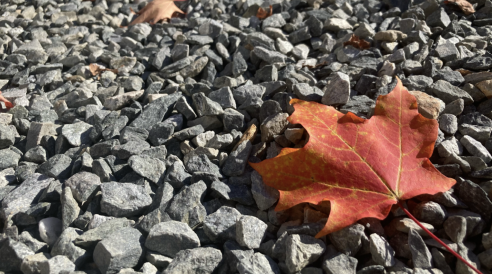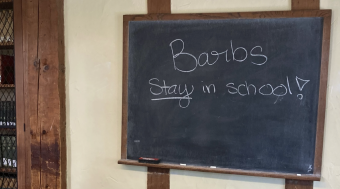

Oscar Chun

You are here

Academic Support at Dartmouth
Classes at Dartmouth run fast. Under the Quarter System, each academic year is broken into 4 terms—for 10 weeks per term. Although this allows students to take more classes compared to a semester system, it also means students learn faster with some self-guided study. But sometimes you need more help!
This term, my classes I've been needing the most help with are WRIT 5: Expository Writing - Food For Thought and COSC 1: Introduction to Programming and Computation—two very different courses. WRIT 5 is essay-heavy, so I've been looking for new eyes to read over my writing and bounce ideas off of. While COSC 1 is concept-heavy, computer science can be hard to understand and having someone walk you through a problem can make such a big difference.
Support from the Course:
Professors understand that their courses can be hard! Often, courses have built-in academic support and feedback.

WRIT 5 is designed to help improve your writing skills, which is best done with feedback on your work. For every essay, we receive two rounds of comments—from the professor and from three peers. My professor leaves suggestions on every student's paper and has conference slots to ask questions, break down feedback, and give more ideas. I've found this essay review structure very helpful. With in-class review, my professor and peers understand the essay content as well, so they can identify holes in my argument that I wouldn't have considered otherwise and offer guidance on how to improve my writing.
With COSC 1, I sometimes struggle figuring out how to attack a problem. While the professor is very helpful, COSC 1 is a huge class—this term it has 200+ students across two sections. So it would be impossible for one professor to answer that many questions. Instead, there is a group of COSC 1 teaching assistants (TAs) who offer office hours throughout the week. Whenever I run into a problem with my code, there's always a TA ready to break down the problem with me and help me troubleshoot. This past week, I've spent a majority of my time walking through practice problems in preparation for my most recent midterm. I'm happy to say that the practice really helped—because of the TA's support, I felt confident taking that exam.

For WRIT 5 and COSC 1, there is a lot of support built into these courses. However, some classes don't have as extensive in-course support systems. For students who would still like that support, there are many organizations across campus that offer help. Here are just a few that friends have recommended:
The Academic Skills Center:
For academic help, the Academic Skills Center (ASC) is a great all-rounder. If you're struggling with time management, effectively understanding assigned readings, or any other academic skill, the ASC offers workshops and resources to streamline your learning. The ASC also offers 1-on-1 coaching sessions with a staff member who can help evaluate your learning process and connect you to more resources. The ASC also hires current students as peer tutors for a variety of classes, such as GOVT 5, MATH 3, and CHEM 5.
The Writing Center:
If you're working on an essay, the Writing Center offers tutoring from current students across a variety of disciplines. Whether you're writing a scientific research paper, a philosophy essay, or a creative writing piece, there is a tutor who can help you with that. Tutor appointments can be helpful at any part of the writing process. Besides final draft edits, tutors can help with brainstorming ideas, building project outlines, and refining your writing skills. The Writing Center serves as a place to polish your ideas and makes you feel confident in your writing projects.
Dartmouth Emerging Engineers:
For those pursuing engineering at Dartmouth, Dartmouth Emerging Engineers (DEE) can be a great source of academic support. Engineering is known to have many prerequisites, such as MATH 11, PHYS 13, and COSC 10 (peer tutors for these classes are also offered through the ASC!). So DEE offers tutoring sessions with support specifically for engineering prerequisite classes. Besides help with courses, DEE can also connect you with upper-level engineering students who can offer advice and answer engineering-related questions.

When considering colleges, I didn't think of how much academic support I would need. At Dartmouth, professors, advisors, and peers all want to see you succeed, which is why there are so many levels of tutoring and advising available on campus. All you have to do is look for it.
Posts You Might Like

Ciao Bella! Let me explain how I am completing the Dartmouth language requirement one row at a time.


Read more about the Ling 1 Introductory Linguistics class!


Read more about the Spanish 9 Advanced Culture and Conversation class!


Come learn about the classes I'm taking this summer!


My time at the MFA, completely free of charge!


At Dartmouth, students have the opportunity to fuse two different academic studies and programs into a single major. Learn more about my modified major here!


A look into my class Italian 85: Independent Reading and Research, focused on Italian Fascism.


Read more about the QSS 17 class!


Why the Dartmouth Greenhouse is my favorite campus escape
